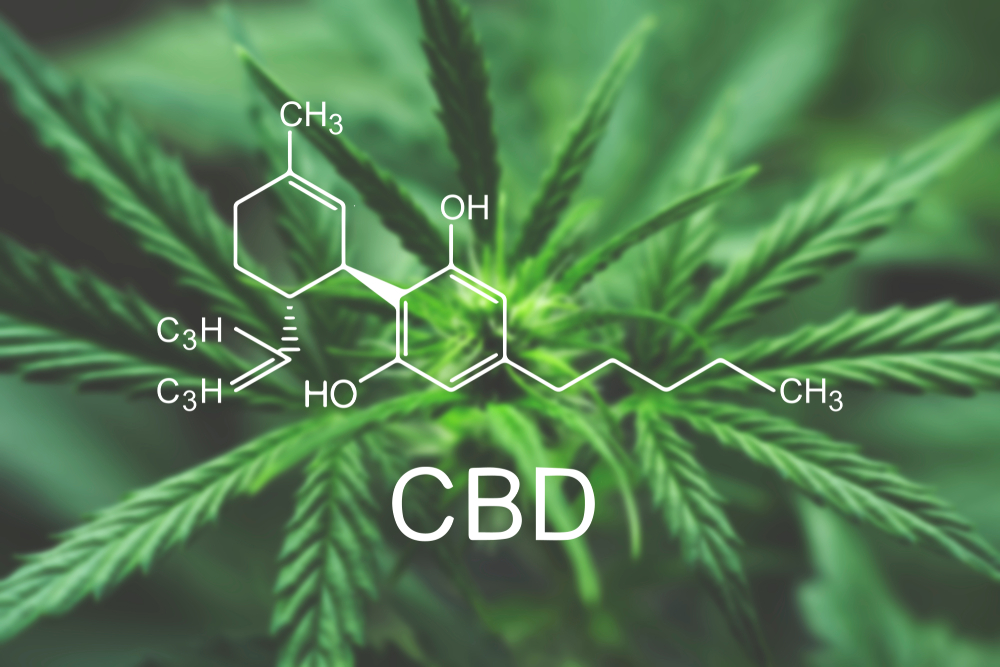When we talk about Cannabis and weight loss, you may be confused, after all, it is common to associate Cannabis with increased appetite.
But did you know that medical Cannabis can be an important ally in weight control? We will explain better in this post. For some years now, the fight against overweight has been gaining new allies, and cannabinoid derivatives have gained prominence due to their potential in controlling appetite and energy metabolism.
Obesity can be considered a public health problem. More than half of the Brazilian population (53%) is overweight or obese. This is shown by a survey carried out by the Ministry of Health and by the Brazilian Supplemental Health Agency (ANS). As we know, many diseases are associated with obesity, especially diabetes, high blood pressure and cardiovascular diseases. That is why it is so important to find allies to a balanced diet and regular physical exercise.
Keep on reading to understand how medical Cannabis can help fight obesity.
Medical Cannabis as an ally in the fight against obesity
Cannabinoids have distinct physiological effects in their interactions with the Endocannabinoid System. The biochemical structure and the metabolic context of each patient have influence on these interactions.
But we know that the THC characteristically stimulates appetite. Not surprisingly, predominant formulations in THC constitute an important therapeutic adjunct in clinical conditions that trigger inappetence, such as cancer patients or people with HIV.
Studies show that the CBD, on the contrary, tends to inhibit appetite and therefore, reduces weight and fight obesity.
CBD and appetite control
The CBD is related to weight loss in the following ways:
1. Assisting in mitochondrial activity and metabolic control
Mitochondria are organelles responsible for converting fats and sugars into energy for cells, stimulating the metabolic activity. If the mitochondria are not functioning well, the body will have difficulties in transforming the energy consumed through food into by-products that the body can use. This generates an accumulation of fat and blood sugar, and consequently, weight gain.
Scientific studies indicate that CBD interacts with the Endocannabinoid System to increase the number of mitochondrial cells and stimulate the activity of these organelles, playing a key modulating role in mitochondrial function, favoring the body’s metabolic balance and helping to fight obesity.
2. Normalizing insulin levels to activate fat burning
We know that high levels of fats and sugars in the blood can trigger several pathologies, such as diabetes, cardiovascular diseases and liver complications. We also know that high sugar diets increase insulin levels in the blood. The function of insulin is precisely to transport this sugar to the cells, converting it into energy.
However, when insulin levels are high, the body can no longer burn fat properly. This is because the cells that were previously sensitive to insulin, absorbing the glucose brought by it, end up becoming resistant to this hormone. This metabolic dysfunction establishes a cycle in which insulin resistance leads to the storage of more energy in the body and promotes, for example, the increase in abdominal fat.
It is in this scenario that CBD appears as a potential ally, helping to stabilize blood insulin levels and favoring the fat burning process. As exemplified by this study which covered about 4,700 fasting patients in which the use of CBD was able to reduce insulin levels in the bloodstream by 17%.
3. Inhibiting appetite to reduce calorie intake
Controlling your appetite is essential to avoid being overweight. CBD is also active in this context, functioning as a potential appetite suppressant. But you probably have heard the opposite: that Cannabis increases the desire to eat. This is not the case for the predominant CBD formulations.
The Cannabis-based products responsible for stimulating appetite are those of which the predominant phytocannabinoid is the THC, which is also widely used for medical purposes for this attribute and for many other therapeutic properties.
A study published in 2012 further evaluated the effects of cannabinol (CBN) compared to cannabidiol (CBD) on feeding patterns in rats and showed contrary results between these two phytocannabinoids: while CBN stimulated food intake and body weight gain, CBD helped to inhibit food consumption and weight gain.
The key to a safe and assertive prescription when it comes to medical Cannabis and appetite control is to know the product profile you prescribe and the metabolic context of each patient. In addition, we emphasize that a balanced diet and regular physical exercise remain the most important allies in controlling obesity.
If you wish to incorporate Cannabis-based drugs into your therapeutic arsenal safely and effectively, contact us and access new possibilities in the Medicine!
References
Bielawiec P, Harasim-Symbor E, Chabowski A. Phytocannabinoids: Useful Drugs for the Treatment of Obesity? Special Focus on Cannabidiol. Front Endocrinol (Lausanne). 2020.
Farrimond JA, Whalley BJ, Williams CM. Cannabinol and cannabidiol exert opposing effects on rat feeding patterns. Psychopharmacology (Berl). 2012.
Parray HA, Yun JW. Cannabidiol promotes browning in 3T3-L1 adipocytes. Mol Cell Biochem. 2016.
Penner EA, Buettner H, Mittleman MA. The impact of marijuana use on glucose, insulin, and insulin resistance among US adults. Am J Med. 2013.
Ryan D, Drysdale AJ, Lafourcade C, Pertwee RG, Platt B. Cannabidiol targets mitochondria to regulate intracellular Ca2+ levels. J Neurosci. 2009.




